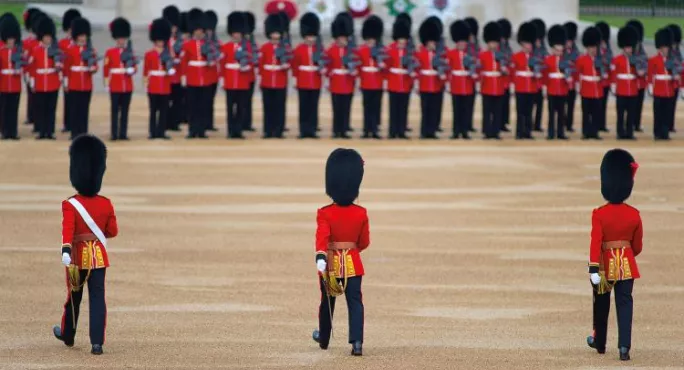- Home
- Turning troops into teachers: 6 key questions answered
Turning troops into teachers: 6 key questions answered

The government has announced that it wants to help former service personnel retrain as teachers with a £40,000 bursary.
Here are six key questions about the plans:
Why now?
The Department for Education needs to do something, or perhaps many things, to address the crisis in teacher recruitment.
Latest figures show that the numbers applying to start postgraduate teacher training in September 2018 are 23 per cent down on last year.
Already, the DfE has told teacher training providers to rethink their entry standards and allow unlimited resits of the professional skills tests.
Why troops?
The bursary is part of the Armed Forces Covenant - the promise from the nation to those who serve - to help resettle forces and their families into civilian life.
There is also the hope that veterans may be ideally suited to teaching and inspire pupils.
Gavin Williamson, defence secretary, said: “Our incredible troops have unrivalled life experiences and world-class skills that will motivate and inspire a generation of children in classrooms across the country.
“Through leadership, teamwork and problem solving, veterans are ideally suited for a career in teaching once they leave the armed forces. Troops to Teachers not only offers our valued veterans a new and fulfilling career, it will help our children achieve their aspirations and life goals.”
Why did the previous scheme “flop”?
Labour described Troops to Teachers as a “flop” when it was revealed that the first cohort resulted in around 30 veterans qualifying and becoming teachers - just a sixth of its target of 180 places.
The two-year, train-on-the-job course - which involved completing a degree alongside teacher training - was also seen as challenging. Although entrants did not have to be graduates, entry requirements were relatively high - and there were some initial difficulties at first finding placements for teachers.
But some of those completing the course say it has been a great support. There are now 106 service-leavers who have qualified through the scheme and a further 96 trainees are currently studying.
Colin Grimes, a former aerospace systems manager in the Royal Air Force who is now Year 4 teacher at Rothbury First School in Northumberland, said: “Studying for a degree in education while being supported financially opened up exciting new career choices for me. Without this kind of support, many candidates would not have access to career opportunities of this kind.”
This time around, the DfE has not published a target.
What are the key differences between Troops to Teachers and the new bursary?
Courses at universities nationwide will offer the bursary to veterans, rather than veterans having to join a specific course.
The bursary is for undergraduates - and entrance requirements for the course are the same as for any other undergraduates.
The bursary is payable over the final two years of a three-year course. It will be open to candidates from this September.
Is everyone now happy?
The unions are happier, but not happy. While they welcome schemes aimed at addressing the recruitment crisis, there is concern that this is tinkering around at the edges.
“One off, small-scale initiatives like this may help individual career changers but they are not the solution to the deep- problems faced by schools.” Nansi Ellis, assistant general secretary of the NEU teaching union, said.
Where is the money coming from?
The DfE says that the bursary is equivalent to the support that veterans now get from Troops to Teachers. Current trainees are paid as an unqualified teacher, while training.
But recent documents released by the DfE also reveal that there is due to be a £95 million underspend in 2017-18 by the National College for Teaching and Leadership - with some of this down to a shortfall in teacher training applicants.
Want to keep up with the latest education news and opinion? Follow Tes on Twitter and like Tes on Facebook
Keep reading for just £1 per month
You've reached your limit of free articles this month. Subscribe for £1 per month for three months and get:
- Unlimited access to all Tes magazine content
- Exclusive subscriber-only stories
- Award-winning email newsletters



